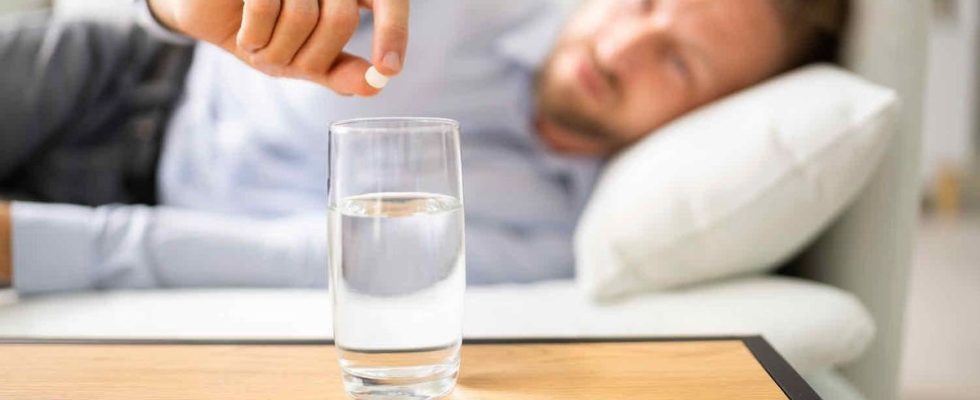Published on
Updated
Reading 2 mins.
Idle body, headache, drowsiness, pasty mouth… The symptoms of the “hangover” are well known. To remedy this, Chinese researchers are betting on a genetically modified probiotic whose first results are surprising.
Detox herbal tea, vitamins, supplements… Many “miracle” tips promise to put an end to hangovers, that unpleasant feeling that occurs after excessive alcohol consumption. If all these remedies are not equal, a probiotic is today talking about him. According to Chinese researchers, the ADH1B enzyme would accelerate the breakdown of alcohol in the body.
ADH1B enzyme is “100 times more active than other variants”
Beyond the hangover, alcohol consumption has also been linked to many health problems: heart disease, cirrhosis, immunodeficiency… The best way to avoid them is without a doubt to avoid them. drink, but researchers are now showing interesting results to alleviate hangovers and other adverse effects: a genetically modified probiotic.
Chinese researchers looked at a specific enzyme – dubbed “alcohol dehydrogenase” or ADH – that helps metabolize alcohol.
“Some studies have shown that a form called ADH1B, found primarily in East Asian and Polynesian populations, is 100 times more active than other variants“, explain the scientists in a communicated.
The team of scientists then had the idea of introducing the ADH1B gene into the strain of a bacterium: the Lactococcus lactis. The researchers encapsulated the probiotic to ensure it would survive against stomach acid, then tested it on 3 groups of 5 mice, each exposed to different levels of alcohol.
Result ? In the control group of mice (not having received any treatment), the signs of inebriation appeared after about twenty minutes.
“When mice were placed on their backs, for example, they were unable to get back on their feet“, explain the authors.
In contrast, in the group of treated rodents, half of them were still able to roll over one hour after exposure to alcohol.
“A quarterback never lost his ability to turn around“, say the scientists.
Another notable finding of the study: two hours after exposure to alcohol, blood alcohol levels in the control group continued to increase, while those of the treated mice fell.
Finally, the mice that received the modified probiotic had lower levels of lipids and triglycerides in the liver.
“This suggests that the probiotic could reduce the damage caused by alcohol to this organ.“, say the researchers.
Towards a new treatment?
The treatment seems promising according to the scientists, since it could contribute to the development of new drugs against liver diseases.
“We Are Excited About The Benefits Of Probiotics In Alcohol-Induced Acute Liver And Gut Injuryl”, concludes Meng Dong, lead author of this research.
The probiotic has not yet been tested in humans, but the authors believe that if it confers the same benefits, it could present a new way to reduce alcohol-induced health problems and liver problems by general.
